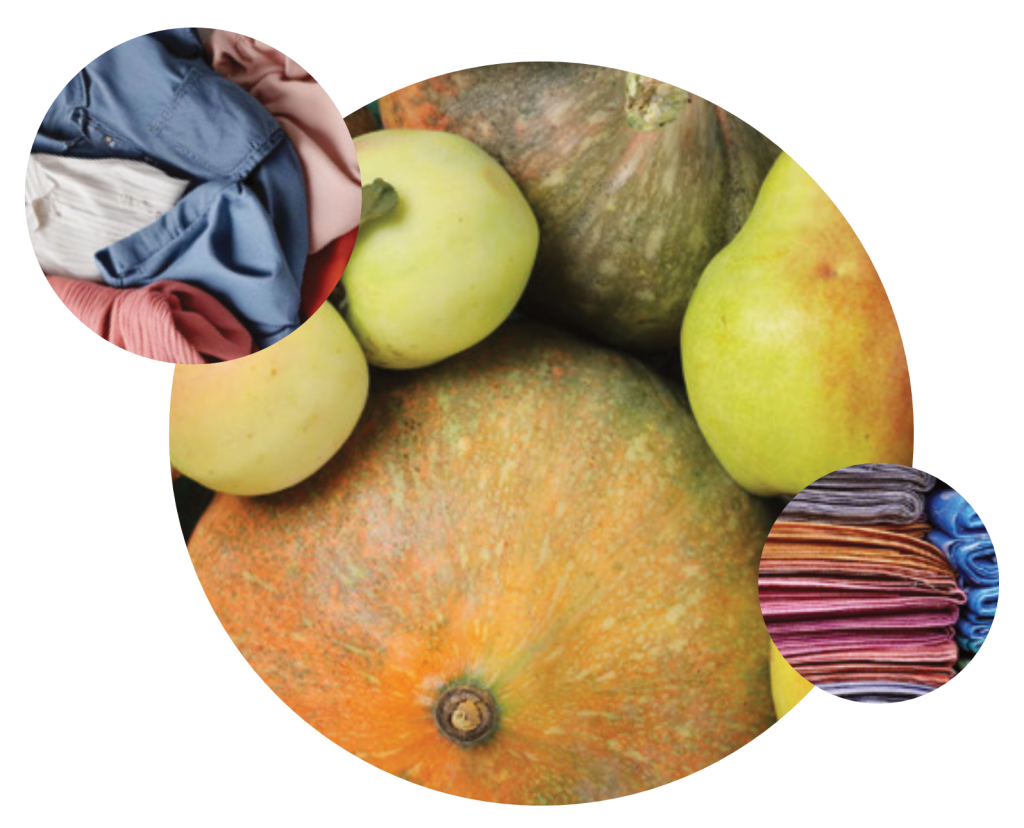A circular bio-based economy is a key element of a European low carbon economy and is projected to increasingly contribute to greenhouse gas (GHG) emissions reductions, decreased dependence on fossil resources and drive economic growth over the next decades. It can help meet the European Green Deal’s goals, including its plan to reduce EU greenhouse gas emissions by at least 55% by 2030, compared to 1990 levels. It also contributes to other EU initiatives, including the Circular Economy Action Plan, the Biodiversity Strategy, Zero Pollution action plan and the Farm to Fork Strategy.
EU biorefineries producing bio-based products are expected to be an important part of the circular bio-based economy. Moreover, deployment of biorefineries that utilise EU biomass will increase safe supply of raw materials, decrease emissions, and create jobs and business opportunities, especially in rural areas. Approximately 300 chemical and material driven biorefineries at commercial or demonstration scale are located in the EU.


PROMOFER project will address the valorisation of two kinds of feedstock (lignocellulosic biomass and food industry waste) through the improvement of the fermentation processes and downstream purification solving identified bottlenecks at both upstream and downstream steps and producing high-value applications. There will be produced 3 SSbD, circular bio-based products 1, 2) polyhydroxyalkanoates (PHAs) to be used in geotextile nets applications (agriculture sector) and coated paper packaging applications (packaging sectors); 3) 2,3-Butanediol (2,3-BDO) to produce bio-based PU for the technical textile applications in the fashion industry sector. The integration of these waste streams as biorefinery feedstocks will allow reducing the volumes of landfilled waste, improving competitiveness, resource efficiency and opening new opportunities for the bioplastics production with added advantages of environmental performances and social acceptance. PROMOFER will work towards achieving an optimal cascading use of bio-based feedstock, aiming for ‘zero waste’ and ‘zero-pollution’ operations.
The main goal of the PROMOFER is to improve the efficiency in the fermentation process production of two of the most commercialized biobased compounds: Poly(3-hydroxybutyrate-co-3-hydroxyvalerate) (PHBV) a flexible biodegradable and biobased polymer with higher thermal and mechanical properties compared to well-know PHB and 2,3-butanediol (BDO), a chemical compound with a high demand for a wide range of applications (printing inks, perfumes, fumigants, moistening agents and softening agents). In this case, 2,3-BDO obtained by fermentation will be used as starting material to produce biobased polyurethanes (PUs). PROMOFER will demonstrate fermentation technologies to facilitate the large-scale deployment of industrial bio-based systems (PHBV and 2,3-BDO).


The methodology of the PROMOFER project will focus on improving the efficiencies (yield, titre, selectivity) of the entire value chain in which fermentation processes are involved to obtain bioproducts such as PHVB, 2,3-BDO and PU, but also in the transformation of these biobased bioplastic into products destined to the market. Additionally, the PROMOFER project will target a significant improvement of the environmental performance using recycling and re-use strategies. To achieve this objective, 5 different strategies will be applied, focusing on the stages that comprise the value chain.
To apply efficient pre-treatments for lignocellulosic biomass
To improve the yield of VFA production in acidogenic fermentation
To improve the performance of 2,3-BDO and PHBV producers through non-GM genome editing approaches
To improve the performance of 2,3-BDO and PHBV producers through genetic engineering
To improve the extraction and purification process of PHBV and 2,3-BDO by environmentally friendly alternatives
To apply an efficient process design for the fermentation to maximize accumulation of PHBV and 2,3-BDO
To obtain PHBV-based compounds and demonstrate their performance through the production of prototypes for packaging and agricultural applications
To produce biobased PU from 2,3-BDO obtained in the project
To ensure knowledge sharing and uptake to maximize impacts
To improve the environmental performance across all stages of the fermentation process
To determine public awareness and acceptance of bio-based products and to support acceptance of scalable bio-based solutions
The ambition of PROMOFER project is linked to (i) the use of specific biobased wastes from different industries, generated in significant amounts in Europe and showing specific overcomes to be valorised into high-added value products and (ii) to improve fermentative processes to produce bioplastics (PHBV and PU), whose yield are often inefficient to compete with chemical synthesis processes. On the one hand, agro-industrial wastes (low value starches, whey permeate, industrial wastewater) will be used to produce PHBV a biodegradable and biobased bioplastic. On the other hand, lignocellulosic biomass (rice straw, wheat straw and prune waste) will be used to produce 2,3-BDO a chain extender in thermoplastic polyurethanes. In this context, PROMOFER project will stablish different strategies for the improvement of the different bottlenecks present at industrial level in the production processes of two highly valuable compounds for the biobased market such as PHBV and 2,3-BDO. PROMOFER will contribute to significant knowledge advancements of the state-of-the-art in biobased waste treatments, improvements of strain capacities, uses of biocatalysts, process designs and downstream processes.
